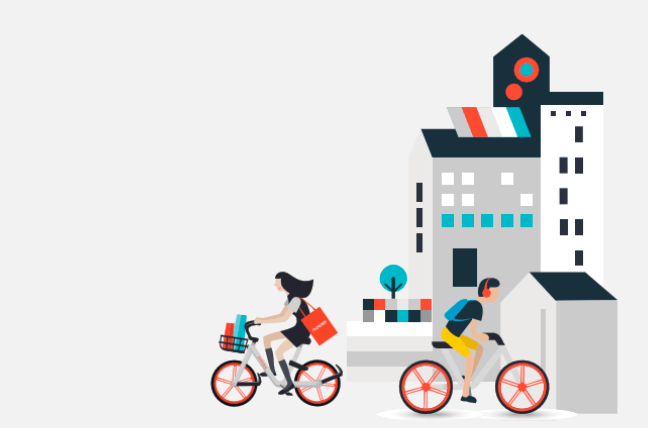Maybe bikes will save the planet after all.
According to a report from the Beijing Tsinghua Tongheng Innovation Institute, helpfully relayed from the original Chinese by Carlton Reid at BikeBiz, cycling rates have doubled in Chinese cities since the advent of dockless bike-share systems.
There are now about 16 million dockless bike-share bikes in circulation around China, with each used for an average of three trips per day, according to the British Medical Journal.
China already had a strong cultural tradition of bicycling for transportation. Until recently, cycling was the dominant urban transportation mode, and most people are old enough to remember streets full of bike traffic.
After losing ground to motor vehicles for several years, bicycling in China is clawing back mode share thanks to the dockless bike-share boom. In Shenzhen, the bike-share fleet of 500,000 has replaced "nearly 10 percent of travel by private car," Reid reports.
Buoyed by billions of dollars in venture capital, the companies are blanketing urban territory with their product. While Chinese cities are still figuring out how to deal with the clutter of dockless bike-share and the immense "bicycle graveyards" that pile up, the ubiquity of the new bike-share technology is also one of its distinct advantages.
The bikes are useful because they're everywhere, with fleets that dwarf even the largest that American cities have to offer. They're also affordable, with each trip costing as little as 30 cents. It remains to be seen whether the business model of cheap bikes at low prices is sustainable in the long run, but for now it's clearly having a major effect on the urban transportation systems of the largest nation on Earth.
We're also still learning how well the dockless bike-share model translates to American cities, where car culture is much more deeply ingrained and bike infrastructure remains patchy and sparse.
Here, the city that's farthest along with dockless systems is Seattle, where the city permitted more than 9,000 of the bikes after its earlier attempt at a station-based system fizzled. Usage of the dockless bikes quickly eclipsed Seattle's old system, but the number of trips per bike per day has fallen recently, and remains well below the figure for New York's Citi Bike.






